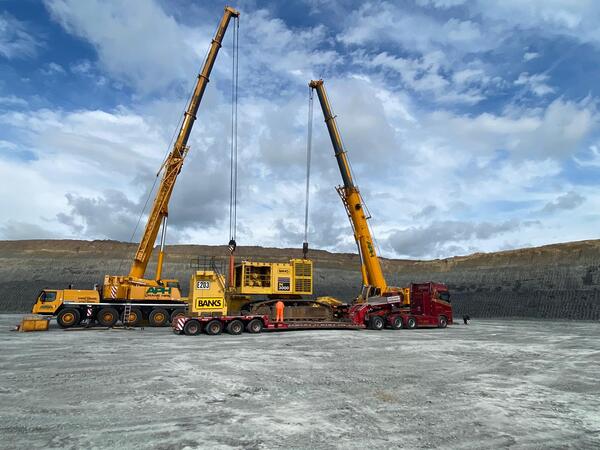
Crane hire is an essential service for various industries, including construction, infrastructure, and more. It provides access to powerful lifting equipment without the long-term investment of purchasing and maintaining a crane. This article will explore the key aspects of crane hire, including the types of cranes available and the different contractual arrangements.
Benefits of Crane Hire
- Cost Savings: Hiring a crane avoids the significant upfront costs of purchasing, as well as ongoing expenses like maintenance, storage, and insurance.
- Access to a Wide Range of Equipment: Crane hire Lincoln offer a variety of cranes suited for specific jobs, from small spider cranes for indoor work to large mobile cranes for heavy-duty lifting.
- No Maintenance or Repairs: The rental company is responsible for maintaining the crane, ensuring it’s always in top working condition.
- Compliance with Safety Regulations: Reputable crane hire companies ensure all equipment is properly maintained and meets industry standards.
- Expert Support: Many companies provide certified operators and technical support to help plan and execute lifts safely and efficiently.
Types of Cranes Available for Hire
- All-Terrain Cranes: Suitable for rough terrain and areas with limited access, often used for construction and infrastructure projects.
- Lorry Loader Cranes: Designed for loading lorries and lifting cargo from truck beds.
- Mini Spider Cranes: Compact and maneuverable, ideal for indoor use and delicate materials.
- Mobile Cranes: Versatile and can be driven to different locations, suitable for construction, demolition, and infrastructure projects.
CPA Hire vs. Contract Lift
When hiring a crane, there are two main contractual options: CPA (Construction Plant-hire Association) Hire and Contract Lift. The key differences lie in the responsibilities and liabilities of the hirer and the crane company.
- CPA Hire: In CPA Hire, the crane and operator are the responsibility of the customer once the crane is on-site. The customer must provide a suitably appointed person to plan the lift, select the correct personnel, and ensure appropriate insurance cover. The crane hire company provides a maintained, tested, and certified crane, along with a qualified operator.
- Contract Lift: In a Contract Lift, the crane hire company takes on more responsibilities, including planning the lift, providing an appointed person, supervising the lift, and arranging slinging and signaling. The crane company also typically provides insurance coverage. This option is suitable for customers who do not have in-house expertise in lifting operations.
Factors Affecting Crane Hire Costs
- Type of Crane: Larger, more powerful cranes cost more to hire.
- Duration of Hire: Short-term rentals are usually charged daily or weekly.
- Operator Hire: Some cranes require a certified operator, which adds to the total cost.
- Site Location and Accessibility: Transport costs vary depending on the distance and site conditions.
- Insurance and Permits: Additional costs may be incurred for insurance and permits.
Choosing a Crane Hire Company
When selecting a crane hire company, consider the following:
- Experience and Reputation: Look for companies with a strong track record.
- Range of Equipment: Ensure they have the right crane for your project.
- Compliance with Safety Regulations: Verify they adhere to industry standards.
- Technical Support and Lift Planning: Check if they offer expert assistance.
- Transparent Pricing: Get a clear and detailed quote.
Crane hire offers a flexible and cost-effective solution for accessing heavy lifting equipment. Understanding the different types of cranes and contractual arrangements is crucial for ensuring a safe and efficient lifting operation.